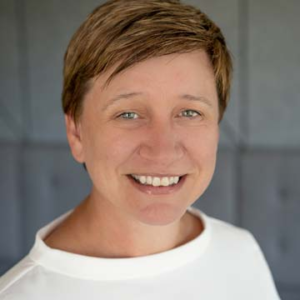Opportunities
The Centre for Safe Air supports collaborative projects regarding high priority air quality hazards including pollution, smoke, dust and biological particles like pollen. Through targeted funding, the Centre develops the capacity of emerging researchers, and fosters the translation of evidence into policy and practice.
Seed funding recipients announced
The Centre for Safe Air is delighted to announce the successful recipients of Centre for Safe Air seed funding 2023.
- Penelope Jones, Fay Johnston, Graeme Zosky, Sotiris Vardoulakis et al. – Let’s talk about air: participatory action research to build capacity in air quality and health.
- Sotiris Vardoulakis, Amanda Wheeler, Fay Johnston et al. – An evaluation of public buildings as safe air shelters during smoke episodes.
- Shandy Li, Yuming Guo et al. – Projecting global future bushfire-related air pollution using advanced artificial intelligence (AI) technology.
- Christine Cowie, Guy Marks, Amanda Wheeler et al. – Characterising differences in urban black carbon and ultrafine particles to inform urban policy making.
- Nur Sabrina Idrose, Shyamali Dharmage et al. -Do aeroallergen-induced adverse cardio-respiratory outcomes (heart rate, blood pressure, hs-troponin, lung function) become worse in those with a history of COVID-19 infection or long COVID?
Centre for Safe Air postdoctoral fellows

Dr Nicolás Borchers Arriagada is a Sohn Hearts and Minds Research Fellow and a Postdoctoral Research Fellow at the Menzies Institute for Medical Research at UTAS. We are delighted to support his research project ‘Using machine learning to predict fire smoke PM2.5 for enhanced fire and health policy in Australia’.
About: With climate change, bushfires will become more frequent and intense. Prescribed burns are used to reduce bushfire risk. Both produce large amounts of smoke, affect the health of Australians and result in high costs for society. This project will enable fire and air quality practitioners better project health, by presenting an assessment of historical and future impacts of fire smoke PM2.5 and developing an interactive desktop tool to improve the assessment of fires across Australia.

Dr Sabrina Idrose is an early career Research Fellow specialising in Environmental Epidemiology, at the Allergy and Lung Health Unit, University of Melbourne. We are delighted to support her research project ‘Breathe with Caution: Unravelling novel insights into aeroallergen induced cardio-respiratory health effects and developing innovative tools for predicting its risks’.
About: Climate change has increased aeroallergen levels, which could be a major health hazard for lung and heart diseases. However, at present, it is not well understood how aeroallergens impact the lungs and heart, nor who is most susceptible when aeroallergen levels are high. Dr Idrose will investigate if aeroallergen exposure can affect the lungs and heart and develop tools to identify those at risk of harm to facilitate early detection and management, and ultimately reduce its health burden.

Introducing our new post doctoral fellow, Dr Rachel Tham. Dr Tham is a Research Fellow at the University of Melbourne based in the Department of Medicine and Melbourne School of Population and Global Health.
We are delighted to fund her research project: ‘Investigating airborne allergen-pollutant co-exposures on allergic respiratory health – a mixed method approach’
About the project: Poor air quality is the leading environmental contributor to disease burden. Climate change affects air quality, including pollen and fungal allergens and is emerging as a serious threat to community health. Little is known about how air pollution can worsen the effect of airborne allergens on health. My research examines the combined effects of airborne allergens and air pollutants on allergic respiratory health to inform understanding of their health risks and enable people to manage exposure.

Dr Gongbo Chen is a research fellow at Climate, Air Quality Research Unit, SPHPM, Monash University.
We are delighted to support his research project: ‘Global mortality burden of industry-related air pollution’
About: This is the first and largest project to systematically evaluate the mortality burden attributable to air pollution from industry sources worldwide. This project will provide distinctive insights by leveraging large, high-quality, and world-unique data along with state-of-the-art methodologies to offer a tailored understanding of the health impact of global industrial air pollution. It aids in enacting evidence-based policies for emission reduction and public health protection.
Alternative career pathways in science
Our alumni showcase the diverse pathways a career in science can take you. Have a look below by selecting on the following tag career pathways.
Past Alumni
